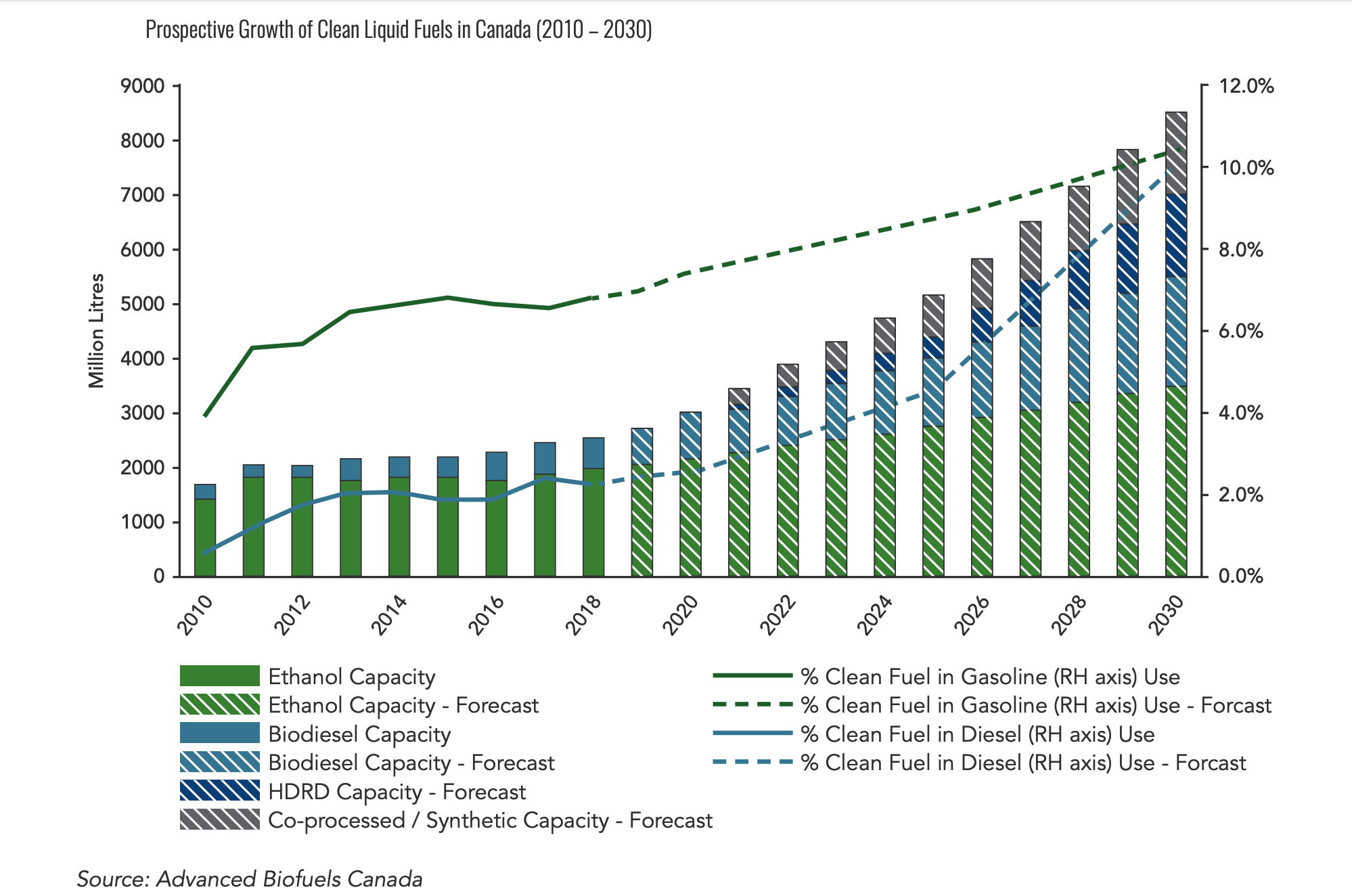Advanced Biofuels Canada (ABFC) has joined with a broad group of clean energy and cleantech industries and non-profit leaders in climate and energy policy to call on the federal government to support secure jobs in a cleaner, innovative, and diverse economy. These clean energy sector leaders recently delivered a letter to Prime Minister Trudeau outlining three overarching recommendations that will help Canada emerge from the COVID crisis with a stronger, more resilient economy. The open letter and its signatories here.
The COVID-19 pandemic and the recent breakdown in the global oil cartel – have brought acute pressures to Canada’s economy. According to ABFC, economic recovery measures that focus on accelerating clean energy transitions will make a lasting impact on Canada’s economic and energy future.
ABFC conducted an annual member survey late last year to capture project-based data on capital investments in advanced biofuels and synthetic fuel production capacity and supporting infrastructure for the decade ahead (2020-2030). Results from 18-member companies surveyed in late 2019 indicate Canada can increase production capacity by at least 5 billion litres per year by 2030.
Total Projects: 51
Aggregate Capital Investment: $12.6 billion
Project Size:
• under $50 million (16 projects)
• $50 to 100 million (8 projects)
• over $100 million (27 projects)
New Production Capacity: 5 billion litres/year
Feedstock Utilization
• Oleochemicals (fats/oils): 4 million tonnes/year
• Forest/crop residues & wastes: 4.5 million tonnes/year
Jobs (direct only): >3,000 operations / head office; >15,000 construction
Companies were re-surveyed in March 2020 to assess the impact of the COVID-19 crisis. While some operating plants have scaled back or closed (1 plant), project development plans reportedly remain active. Investment plans are being reevaluated to assess regulatory signals and financial feasibility. Survey data (partial) captured 11 projects, representing over $1.25 billion in CAPEX, that remain in active development.
In January 2020, ABFC released its Canada’s Clean Fuel Strategy brief and presented the summary recommendations to the Standing Committee on Finance to outline key policy, regulatory and fiscal measures that would support a widescale deployment of new investment in Canada’s clean fuel sectors (advanced biofuels/synthetic fuels, electric vehicles, renewable natural gas, and solid biomass). The brief identifies core policies to attract private sector investment in clean fuels production capacity and infrastructure and to maintain leadership in clean technologies such as ‘waste to fuels’ innovation platforms. These recommendations are reportedly even more relevant today, as ABFC seek to navigate a course to economic recovery following the COVID-19 pandemic and mitigate risks from the structural downturn and exposure to foreign oil policies.
FOLLOW ME ON THESE SPACE
Discussion
Comments are closed.